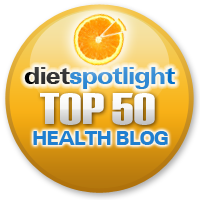THE SEEDS OF ILL HEALTH
Part 4: Last but not least, cereals are dirty
Scientists connected with the flour industry have for many years published articles in trade journals not seen by the general public which describe in detail the filth found in flour.
The wheat grain from which flour is made has a groove on one side which is so deep that it goes more than half way through the grain. This groove naturally contains dirt and microbes that have accumulated while the plant was growing. And it is such a deep and tight groove that the grain cannot be thoroughly cleaned. After harvest, the grain is stored in huge silos until it is required for use. These silos are frequently infested with insects, mice and rats. For these reasons, by the time grain reaches the mills, it is infested with insects, and droppings, urine and hair from rats and mice. Although the grain will have been sprayed with insecticides and anti-fungal chemicals to help preserve them (the chemicals themselves being an unwelcome trespass on our health), there will still be insects, grubs and their droppings inside the wheat grains, which cannot be separated out easily.
The mills do what they can to clean the grain but it's a daunting task, and flour must be such a cheap product that they cannot afford to do very much. Inevitably, dirty grain goes through the mills to be ground into flour. Microscopic examination of flour commonly reveals ground up fragments of insects and rat hair, and traces of rat dung and urine. Bacteriological tests of flour have indicated an extremely high content of microbes. For this reason, the flour from which our daily bread is made, is probably more highly contaminated than anything else to be found in the food industry.
Conclusion
As you go to buy your bread, you might ponder the problem that the whole enterprise of agriculture, which first emerged 10,000 years ago, may be harmful to your health. When you started this chapter, such an idea might have seemed absurd. After all, when inhabitants of what is now the northern coast of Africa began cultivating naturally occurring grasses they were laying the foundation for what would become the first permanent human settlements. But that agriculture introduced Mankind to unnatural dietary habits for which millions of years of evolution had not prepared us.
We're not talking merely about that bloated feeling that so many complain of after eating bread. Dr Staffan Lindeberg, a Swedish physician and scholar of evolutionary nutrition, points out that a typical European gets at least three-quarters of his or her calories from foods that were practically unavailable during human evolution: milk products, most oils, refined sugar, processed foods like margarine and, of course, cereals. There is little doubt that modern European diets rely much too heavily on grain-based foods, whether wholewheat bread or handmade pasta.
Like Lindberg, Professor Loren Cordain thinks the widely accepted notion that cereal grains are the foundation of a healthy diet leaves people woefully short of nutrients and vitamins better provided through meat, vegetables, and fruit.
So, while we are taught that bread is the 'staff of life', we should look at the facts. Cereals and the bread and other products made from them are a very recent addition to our diet. And even today, there are many parts of the world, particularly in the Far East, tropical Africa and South America where bread is not eaten at all. Since there are millions of well-fed, healthy people living today who do not eat cereals, it is very clear that they are not necessary.
Cereals are an unnecessary food that is contaminated not only with natural toxins, but also by vermin. They are not my idea of a suitable food on which to base a 'healthy' diet.
So what is the answer? Well, there is no doubt that we cannot now do without cereals. But we can at least limit the amount of them we eat.
Last updated 31 March 2010
Related Articles

 HOME
HOME



